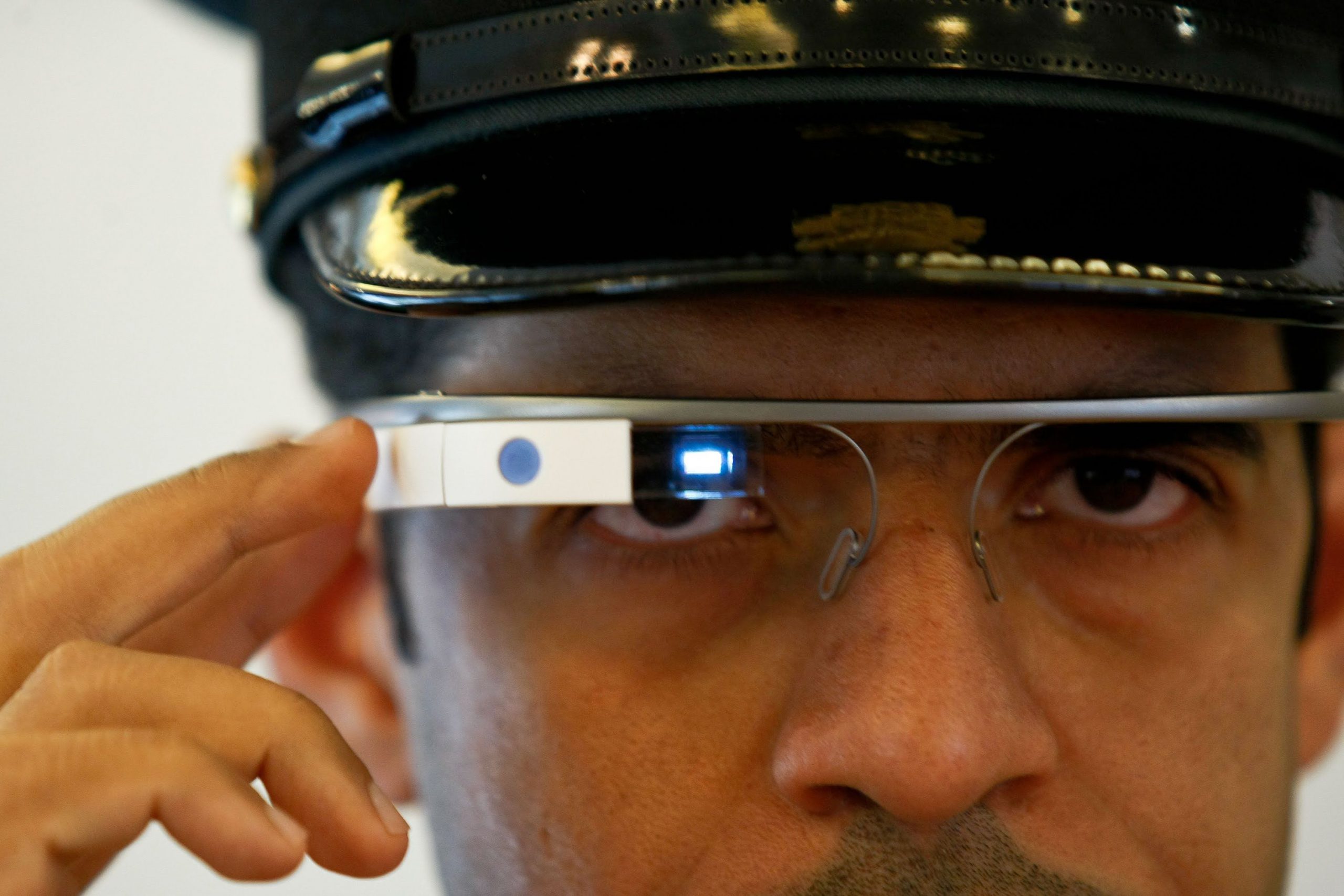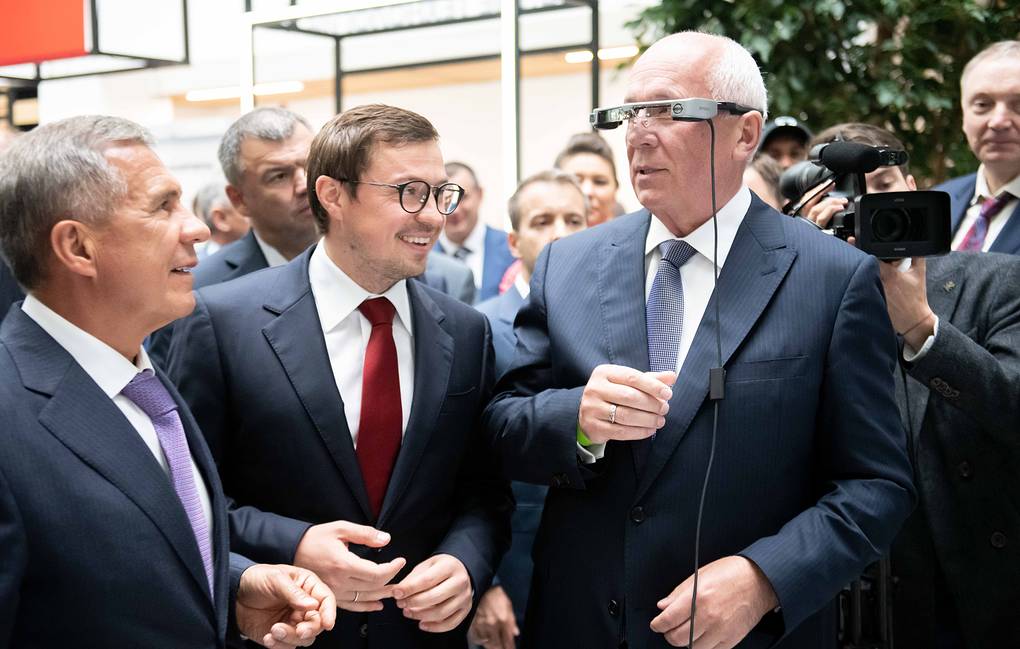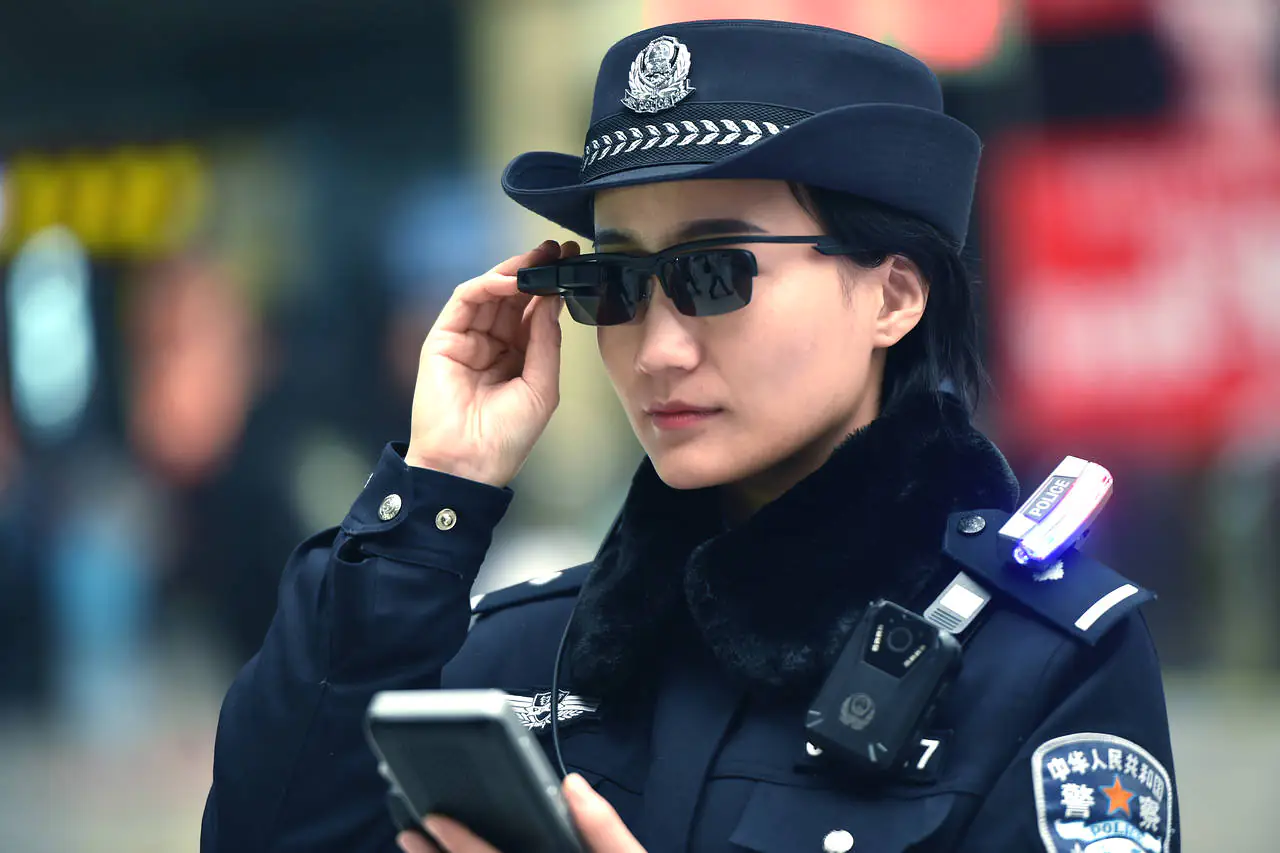Law enforcement agencies around the world are continually improving their tools to fight crime. And in the age of digital technology, there might be a new sheriff in town: smart glasses.
China´s Facial Recognition Technology is on the Rise
Using a pair of glasses to detect and locate wanted criminals or suspects might sound like a scene from Black Mirror, but it’s a reality in China.
These devices have already been deployed in Zhengzhou (the capital of central province Henan) to surveil those traveling by plane and train, according to the Wall Street Journal.
The smart wearable looks a lot like Google Glass, but how does it work?
The device connects to a feed that taps into China’s State-database to root out potential criminals using facial recognition. Officers can identify suspects in a crowd by snapping their photos and matching them to the database and, beyond just a name, officers are also supplied with the person’s address, according to the BBC.
Via its Facebook page, media outlet People’s Daily says the glasses allow police to hunt down fugitives and spot fake IDs with “just one look.”
Wu Fei, the CEO of LLVision Technology, manufacturers of these glasses, told The Wall Street Journal that, during testing, the system could identify faces from a database of 10,000 in 100 milliseconds.
The smart glasses technology has been well received by the Chinese police. For example, six local public security bureaus in China use Xloong augmented-reality glasses, including those in Beijing, Tianjin, and Xinjiang Uighur Autonomous Region.
Xloong is a Chinese company that has developed glasses that can superimpose virtual images on views of the real world and send alerts to officers, thanks to embedded chips and cameras. For instance, a red alert will be projected onto the officer’s real-world view upon matches with suspicious characters.
“We will put 80% of our focus on national security applications for now,” Shi Xiaogang, Founder and CEO of Xloong, told the Nikkei Asian Review in an interview during the Forbes Under 30 Summit Asia in Hong Kong.
In general, surveillance and facial recognition technology are on the rise in China. There are currently 170 million surveillance cameras and the government hopes to more than triple that number by 2020. That would be nearly one camera for every two citizens, which the Ministry of Public Security hopes can eventually be used to identify any citizen within three seconds.
Dubai Avant-Garde in Wearable Technology

(Image source: i.pinimg.com)
Smart glasses are the emerging technology that will help law enforcement in the Middle East to catch criminals.
First Abu Dhabi and now Dubai is adopting these wearables. The U.S. based company Vuzix has paired with NNTC, a Dubai-based software developer, to create new police glasses outfitted with facial recognition technology.
The resulting system will let the wearer “easily and discreetly screen a crowd to match faces against a database of violators, missing people or suspects,” according to the company’s press release. The system is fast enough to detect up to 15 faces per video frame in under one second.
It doesn’t require an active internet connection to work; each pair of glasses comes with a mobile server you can carry around in a satchel. The built-in camera onboard the glasses will take a video of the wearer’s field of view and, meanwhile, the server will analyze and then match the incoming images to a database containing 1 million unique faces.
According to Vuzix, “approximately 50 Vuzix Blade Smart Glasses have been delivered to NNTC and are currently being deployed into several security operations in the region.”
Russia will Arm Police with Smart Glasses by 2020

(Source Image: tass.ru)
Police officers in large Russian cities will be able to identify suspects using facial recognition glasses by 2020.
The head of State-owned industrial conglomerate, Rostec, has said that the augmented-reality devices will use the same technology that helped catch more than 180 criminals during the football World Cup in Russia 2018.
Their developer already deploys facial recognition technology to identify criminal suspects across a network of 160,000 surveillance cameras in Moscow.
“I think next year you’ll be able to see police with these unusual gadgets on the streets of major cities,” Chemezov was quoted by the Moscow Times.
The announcement comes after Russian media reported that law enforcement officers in Moscow were adapting already modern body-worn cameras with Rostec’s facial recognition technology.

